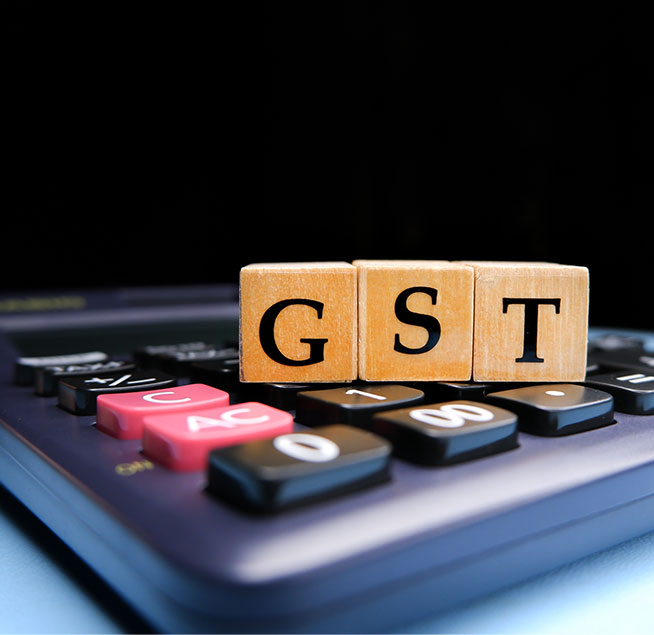Business Travel Super Simplified
Designed for businesses seeking flexibility and a wide range of choices



The GST Bill streamlines business travel expenses by consolidating multiple taxes, making compliance easier for companies. Understanding its impact on invoices helps in better budgeting and cost management. This guide offers tips on managing GST for flights, hotels, and other travel services, ensuring savings and compliance.
Managing travel expenses can be tricky for business travellers, especially with the introduction of the GST (Goods and Services Tax) Bill. This consolidated tax simplifies things by merging multiple taxes into one, which affects invoices, tax credits and travel budgets. Whether you're a business traveller or handle travel for others, understanding GST can save you time and money.
So, let's dive into what is GST bill and how the GST Bill impacts business travel.
| Add savings & convenience to your corporate travel! |
The Goods and Services Tax (GST) Bill in India has changed the tax system, affecting areas like business travel. Business travellers need to understand GST because it impacts their travel costs. Following GST rules isn’t just a legal requirement—it can also help save money and improve budgeting for companies. By claiming input tax credit on travel expenses, businesses can lower their overall costs, making it essential for frequent travellers to know and follow GST guidelines.
Under the GST regime, business-related travel expenses such as flights, hotels and other transportation services are subject to GST. The applicable rates vary:
These taxes are compiled in a GST invoice, which business travellers need to collect from service providers. Proper management of these invoices allows businesses to claim input tax credit, which is vital for expense management and can significantly reduce the net cost of the travel.
Travelling by air and staying in hotels constitute a significant portion of business travellers' travel expenses. Understanding the GST implications of these services is critical for budget planning and claiming the rightful benefits under the GST framework.
When it comes to air travel, GST is calculated differently based on the class of travel. Economy-class tickets are generally taxed at a lower rate compared to business and first-class tickets, reflecting the luxury tax component. This differentiation in tax rates emphasizes the need for careful planning and decision-making in booking flights according to budget allowances and tax implications.
Hotels, on the other hand, apply GST based on the tariff rate of the room. The diverse slab rates mean that the choice of hotel and the type of room booked can significantly affect the GST payable. Here’s a quick look at how GST impacts hotel accommodations:
Business travellers and corporate travel planners should note these distinctions while arranging travel to ensure compliance with GST laws and to make the most efficient use of funds. Proper documentation and keeping of GST invoices from these services are crucial for claiming input tax credit, which can substantially reduce the overall travel expense burden on the company.
| Unlock efficiency and savings for your business travel today! |
Understanding and complying with the GST Bill is crucial for business travellers and the organisations they represent. Compliance ensures legality in each transaction and can aid in claiming benefits or refunds. This section will explain key aspects of GST invoices and the importance of GST numbers.
A GST invoice is essential for charging GST and claiming input tax credit. It needs to have key details, such as
These details in tax invoice under GST Act ensure transparency between the vendor and customer and are crucial during audits or reviews.
Let's understand GST invoicing meaning. A GST tax invoice is an essential and required document under GST law. It's crucial for correctly charging taxes. Business travellers should make sure they get GST tax invoices for all expenses like accommodation, meals, transport and other services during their trips. These invoices allow their employers to claim input tax credit, which helps lower the overall cost of business travel.
It's important to put a GST number on each invoice, including handwritten GST invoice. This makes the document official and allows for tax credits. Having a valid GST number on the invoice shows the transaction is recorded in the tax system, making expenses legit and audits easier. For business travellers, checking the GST number on all bills is necessary to show the vendor follows GST rules, helping their own company stay compliant. GST number bill, therefore, makes things easier.
GST significantly impacts business expenses related to travel as it encompasses various services charged under different tax slabs.
GST includes almost every part of business travel, including flights, hotels, car rentals, meals and other services. The tax rates can differ, so knowing the GST for each is crucial. Hotels and flights usually have higher GST rates, which impact the travel budget a lot. However, businesses can get back the GST paid through input tax credits, making accurate records and compliance important.
Managing and tracking GST expenses can reduce admin work and boost compliance. Here are some helpful tips:
Ensuring all travel invoices meet GST requirements can help organisations get input tax credits, reducing overall business travel costs. Remember to check the regulations regularly since tax laws can change and affect your travel expense claims and compliance.
| Follow us on LinkedIn for business travel insights! |
Ans. The five ways to pay an invoice bill include:
These are the most popular invoice payment methods.
Ans. A GST invoice is a crucial document sellers give buyers that outlines the transaction. It includes details like the names of the seller and buyer, a description of the goods or services, quantity, tax rates, and the total payable amount. The invoice must clearly show the GST amount for transparent record-keeping and compliance, helping businesses and tax authorities with correct tax collection and credit claims.
Ans. In India, most businesses need to pay GST, but there are some exceptions. Businesses with an annual turnover below ₹20 lakh (or ₹10 lakh for northeastern states) don't have to pay GST. Additionally, some goods and services, such as unprocessed agricultural products, education services, and healthcare services, are also exempt from GST. Exempted businesses can issue invoice bills without including GST. However, it is important to understand what GST invoicing means and what is included under it.
Q4. What is 90 days from invoice bill date?
Ans. When you get an invoice, it often includes payment terms. "Net 90" means you need to pay within 90 days from the invoice date. To figure out the due date, just count 90 days from the invoice date. For example, if the invoice is dated January 1st, your payment is due by March 31st.
Related Blogs:
Our features and benefits are curated to suit the needs of every employee using myBiz.
Who manages company's travel expense
Simplified Admin Panel to manage all employees and their expenses
Detailed reports on regular basis to keep a track on your spends
Dedicated Support Manager from myBiz to take care of your queries
Who books for employees
Book using the traveller's Policy to ensure the right options are booked
Shortlist & share travel options to employees directly from myBiz
Track your requests & get the job done from one single place
Who travel for business
Special Corporate Fares in flights to ensure you get more benefits at reduced price
myBiz Assured Hotels for top-rated stay options
Sanitized Cabs to safely pick & drop you to your destinations
Grab all the corporate benefits by creating your account now
Get started by providing minimal details like employee size, organisation name, etc.
Gain most of the benefits by setting up employee-friendly policies (only Admin users).
Invite your employees to myBiz so that they could enjoy all the corporate benefits.
myBiz powers many of the small, medium & large size organisations to help them save on their travel budget and achieve more from their business travels. Read interesting stories from these organisations.